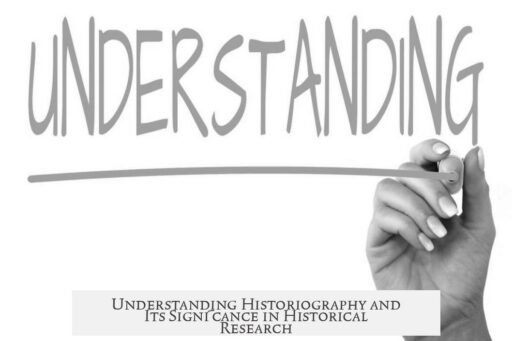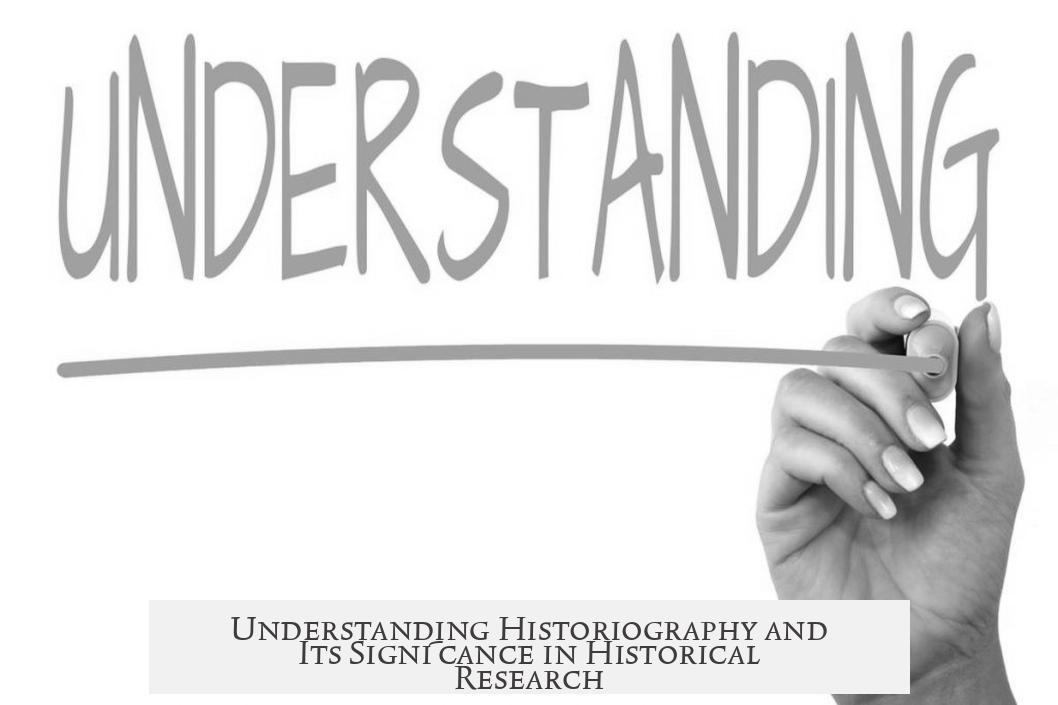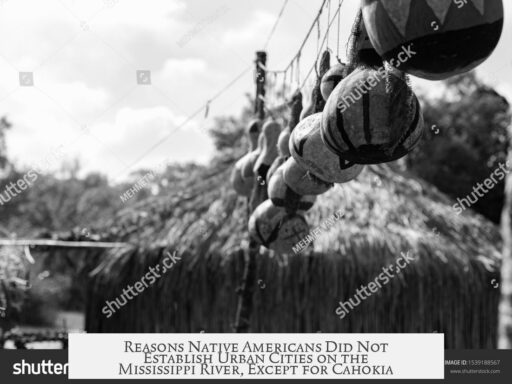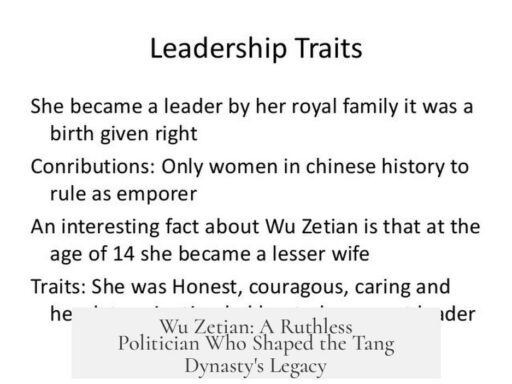Historiography is the study of how history is written and developed as a discipline. It involves analyzing how historians construct accounts of the past, what sources they use, the methods they apply, and the biases that shape their narratives. This field not only examines history’s content but also the process behind historical writing.
Historiography is important because it allows historians to critically assess prior works and ensure their research builds meaningfully on existing scholarship. Without historiographical awareness, historians risk repeating errors, overlooking key perspectives, or failing to connect their work to broader academic debates.
One practical example is the historiography of American slavery. Early 20th-century historian Ulrich B. Phillips dismissed slave narratives as unreliable due to their editing by white abolitionists. As a result, historians largely ignored firsthand slave accounts for decades. This shaped the dominant narrative around slavery, privileging planter viewpoints and sidelining the voices of enslaved people.
Later, scholars like John Blassingame challenged Phillips, arguing that slave narratives are vital primary sources offering perspectives missing from plantation records. His work showed how earlier histories favored white sources, neglecting the complexity of slavery. However, Blassingame’s approach relied heavily on psychoanalytic theory, which some criticized for generalizing from limited accounts.
In the 1970s, cliometric historians Robert Fogel and Stanley Engerman introduced quantitative methods to study slavery, arguing that brutal punishments were less frequent than assumed based on sparse mentions in slave narratives. Their controversial conclusions sparked debates and inspired Herbert Gutman’s critique, which accepted quantitative tools but contested their application.
This evolving historiography demonstrates how history’s interpretation changes with new sources, methods, and critical reflection. Historians must understand previous accounts, their methodologies, and biases to position their own work within this ongoing conversation. This approach improves the quality and relevance of historical scholarship.
Historiography also exposes biases embedded in historical writing. For instance, earlier narratives often reflected the religious, racial, and gender attitudes of their time. White Christian historians marginalized Native American societies’ matrilineal systems, while female contributions were frequently minimized or ignored in male-dominated histories.
In some cases, historiography reveals pseudohistory, such as Geoffrey of Monmouth’s medieval writings about giants inhabiting England. While now discredited, such accounts persisted for centuries, demonstrating how historical writing can be shaped by myth and belief rather than facts.
Studying historiography helps historians uncover these assumptions. It encourages them to apply rigorous methodologies and challenge outdated views. For example, feminist historians have brought female roles and experiences back into focus, correcting historical omissions.
Moreover, historiography answers the “so what?” question in historical research. It helps scholars justify their work by showing how it connects to or challenges established narratives. Without this connection, research risks irrelevance or obscurity.
| Aspect | What Historiography Reveals | Impact on Historical Research |
|---|---|---|
| Source Evaluation | Identifies which primary sources are reliable and why | Improves accuracy and richness of historical accounts |
| Bias Detection | Uncovers cultural, racial, religious, and gender biases | Encourages inclusive and balanced narratives |
| Methodological Analysis | Examines how historians use data and frameworks | Promotes methodological rigor and innovation |
| Contextual Placement | Situates new research in relation to past works | Ensures academic relevance and engagement |
For historians, understanding historiography is essential. It ensures that their work is grounded in awareness of prior knowledge and debates. It also allows them to recognize the limitations and strengths of existing accounts and choose an approach that either aligns with or challenges established views.
In the case of American slavery, the historiography shows how interpretations have evolved through critique and new techniques. This progress enhances the complexity and accuracy of historical understanding.
Key takeaways:
- Historiography studies how history is written and develops as a discipline.
- It helps historians critically analyze past works and their biases.
- It reveals how interpretations change with new sources and methods.
- Historiography connects new research to scholarly conversations.
- It exposes assumptions and encourages more inclusive history.
- Understanding historiography is vital for producing meaningful and rigorous historical research.
What is Historiography and Why is it Important?
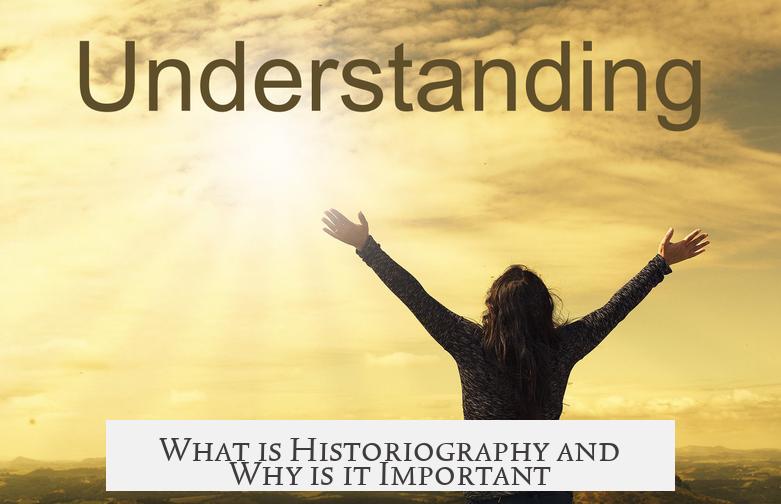
So, you ask, What is historiography and why is it important? The answer is simple but far-reaching. Historiography is both the study of how history has developed as a discipline and the analysis of how historical accounts are written. In other words, it’s history about history—how historians tell stories, what sources they choose, and the biases or methods they bring along. This self-awareness isn’t some academic luxury; it’s essential for writing meaningful history that stands up to scrutiny and truly helps us understand our past.
But why care about historiography? Because it teaches us to dig deeper, question sources, see bias, and keep history alive as a lively conversation rather than stale, dusty tales. Let’s journey through fascinating examples and unpack why every serious historian—and every curious reader—needs to pay close attention to historiography.
Two Faces of Historiography
Historiography wears two hats: First, it studies how the field of history itself developed—its trends, schools of thought, and growing pains. Second, it analyzes the writing of history—how historians create accounts, what sources they select, and what assumptions they make.
This dual nature is vital. Without knowing the story behind the story, how can we trust historical accounts? And how can new research add genuine insight instead of repeating old errors or biases?
A Case Study: The Changing Historiography of American Slavery
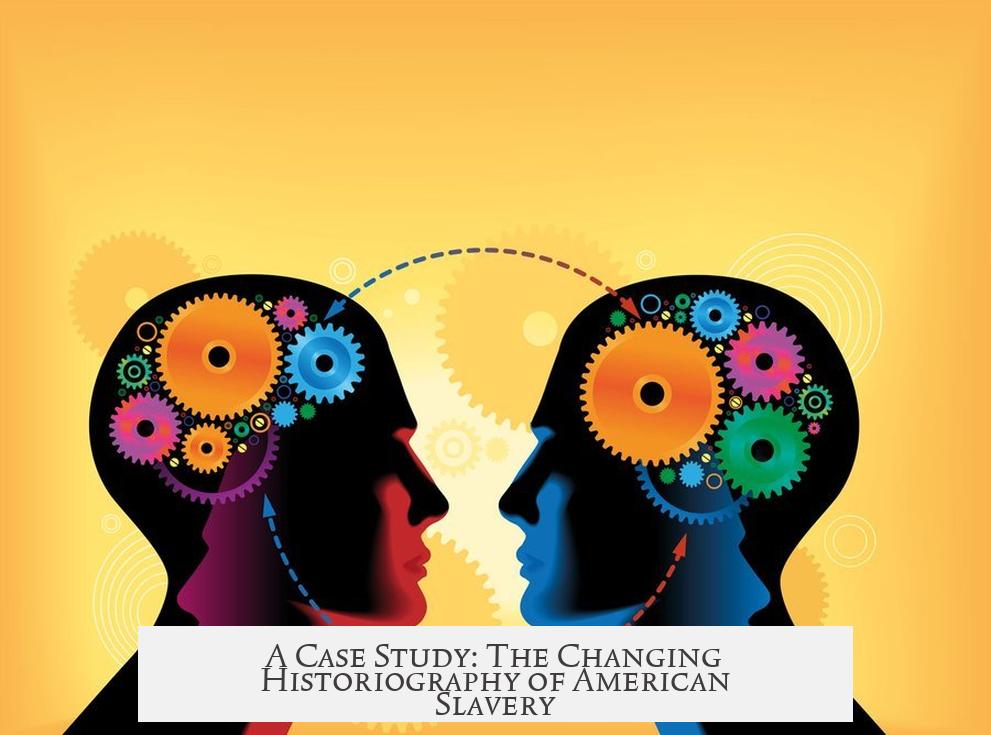
For a juicy illustration, consider American slavery—a subject historians have wrestled with for over a century. Early 20th-century historian UB Phillips leaned heavily on plantation records and slaveholder journals, dismissing first-hand slave narratives. Why? He thought these narratives were unreliable, tainted by white abolitionist editors’ influence. His skepticism stuck like glue for decades, leaving many historical accounts to reflect only the white planter’s perspective.
Imagine relying on only one side in a courtroom drama. That’s what happened. Slave voices were sidelined unfairly.
Then, in 1972, John Blassingame flipped the script. He argued that slave narratives were indispensable. Blassingame criticized Phillips’ viewpoint, pointing out somewhat racist undertones in rejecting slaves’ accounts. By focusing mostly on planter sources, historians had missed the full depth of the slavery experience. However, Blassingame wasn’t perfect. He leaned on psychoanalytic methods applied to a small sample of narratives, which raised eyebrows for lacking broad data.
Enter cliometric historians like Fogel and Engermann with Time on the Cross (1974). They used numbers and data to analyze slaves’ accounts, for example, noting fewer mentions of whippings suggested less frequent lashings. The book sparked huge controversy but also advanced the methodological rigor.
Historiography here shows us history is not a fixed story but a dynamic debate. Each generation uncovers new evidence and tests old arguments, improving our understanding.
Why Historiography Matters Today
When a historian sits down to write about the past, historiography equips them with critical tools.
- They review existing accounts to see what’s been said.
- They analyze the sources and methods previous scholars used.
- They decide their approach—either building on or challenging past works.
- They understand where their contributions fit in the grand conversation of history.
Without this reflection, historians risk repeating mistakes or overlooking key perspectives. Good history writing requires situating your story among the many voices that came before.
Think of historiography as the GPS for exploring the past. It keeps you on course instead of wandering in circles or hitting dead ends.
Historiography: The “So What?” Factor in Research
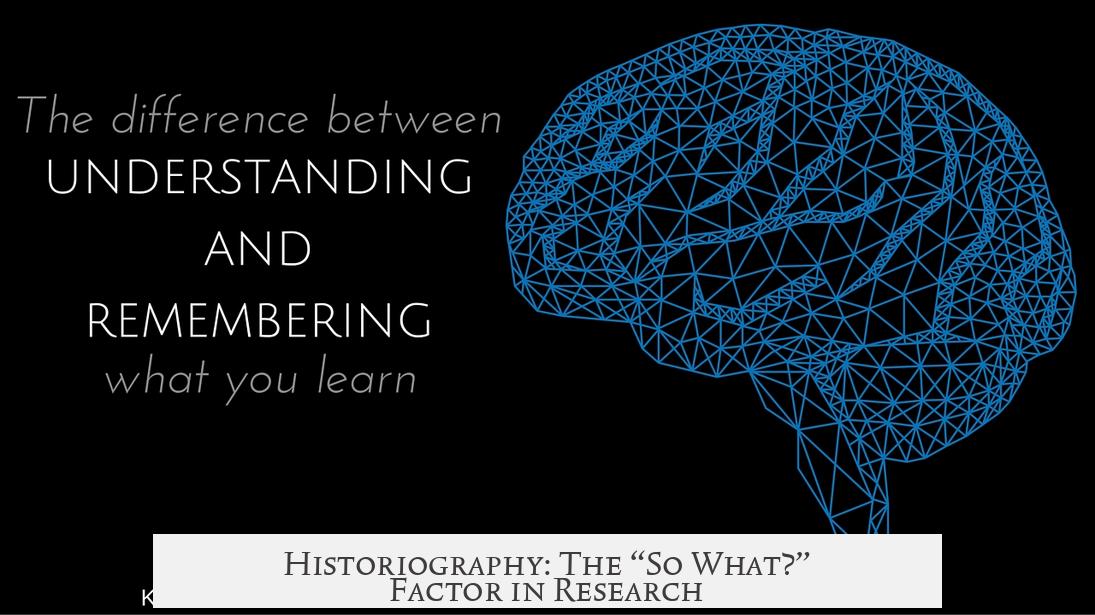
Here’s a confession many academics share: tons of research ends up curled in dusty drawers because it doesn’t connect to larger conversations. Historiography answers the vital question: “So what?”
By showing how one’s work interacts with previous histories, historiography tells readers why the research matters. It situates new findings within ongoing debates. Without it, history risks becoming a solo monologue rather than lively dialogue.
Exposing Biases and Assumptions: A Key Benefit
Historiography exposes biases in old accounts shaped by their times. Early histories often contained gossip or unverified stories, treated as truth because citation standards were lax. For example, 1920s texts like the Annals of Athens mixed subjective tales and anecdotes that modern historians wouldn’t touch without verification.
Religious, racial, and gender biases also skewed histories. European settlers couldn’t appreciate Native American societies with female chiefs, so historians erased native women’s roles. Male historians relegated women to secondary roles, ignoring their contributions.
Through historiography, scholars reveal and correct these imbalances, offering richer, more inclusive histories.
A Summary: Why Every Historian Needs Historiography
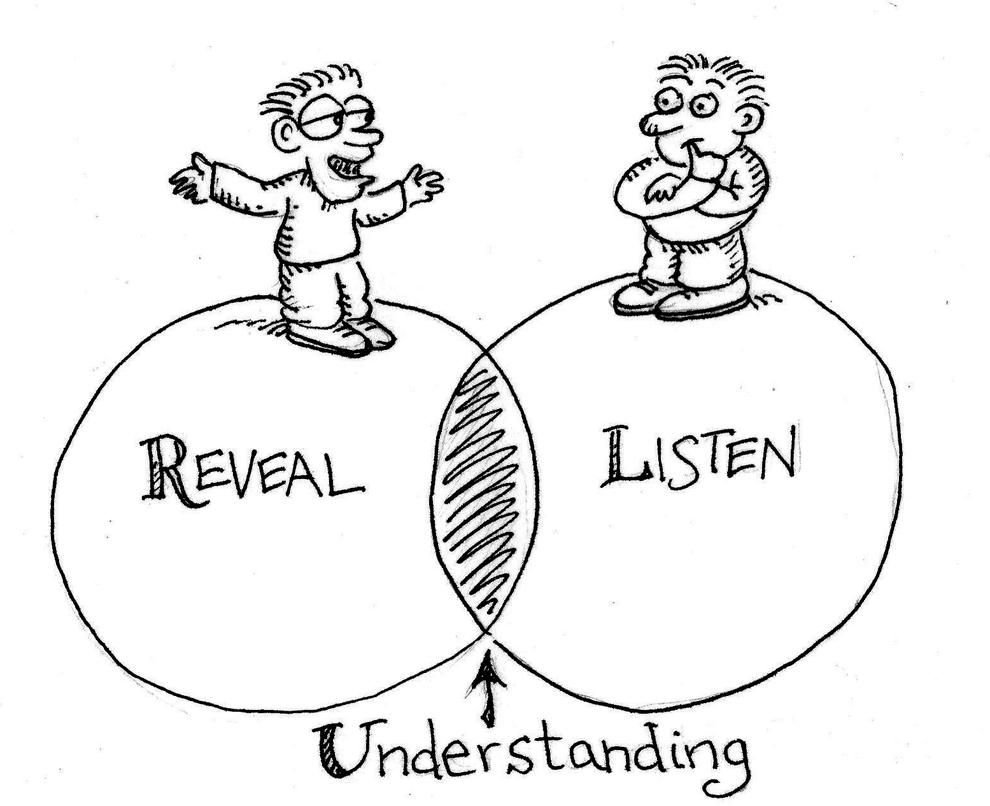
| Benefits of Historiography | Examples & Impact |
|---|---|
| Critically assess earlier historical writings and their biases | Recognizing Phillips’ flawed dismissal of slave narratives reshaped slavery history writing. |
| Contextualize new research within existing scholarship | Historians situate their work amid previous narratives to contribute meaningfully. |
| Recognize and address omission of gender, race, or religion | Reclaiming women’s and indigenous perspectives lost in traditional accounts. |
| Apply methodological rigor and reflect on sources | Incorporating qualitative slave narratives alongside quantitative cliometric analyses. |
| Engage in scholarly conversations | Connecting with others’ research to create a vibrant discourse about the past. |
Eric Foner’s work on Reconstruction exemplifies this beautifully. He revisits past historiography to produce fresh insights about a pivotal era in American history.
Final Thoughts: More than Just History’s Critics
Historiography isn’t just nitpicking or academic hair-splitting. It’s the foundation for honest, thoughtful history. By knowing what came before and how it shaped thinking, historians avoid biased traps and resurrect silenced voices.
For readers, historiography opens doors to see history as a living debate, not a fixed archive of facts. It invites questions: Whose story am I reading? What voices are missing? How does this story fit into broader themes? By examining these, we get closer to truth—not perfect, but more credible and nuanced.
So next time you dive into a history book, ask yourself: How does this historian’s approach align with or challenge previous accounts? What sources are they trusting—and why? That curiosity comes from understanding historiography.
In short, historiography is the secret sauce that transforms history from a dusty relic to an enlightening journey. It sharpens our minds, refines our stories, and helps us learn not just what happened, but how and why we tell those stories the way we do.
